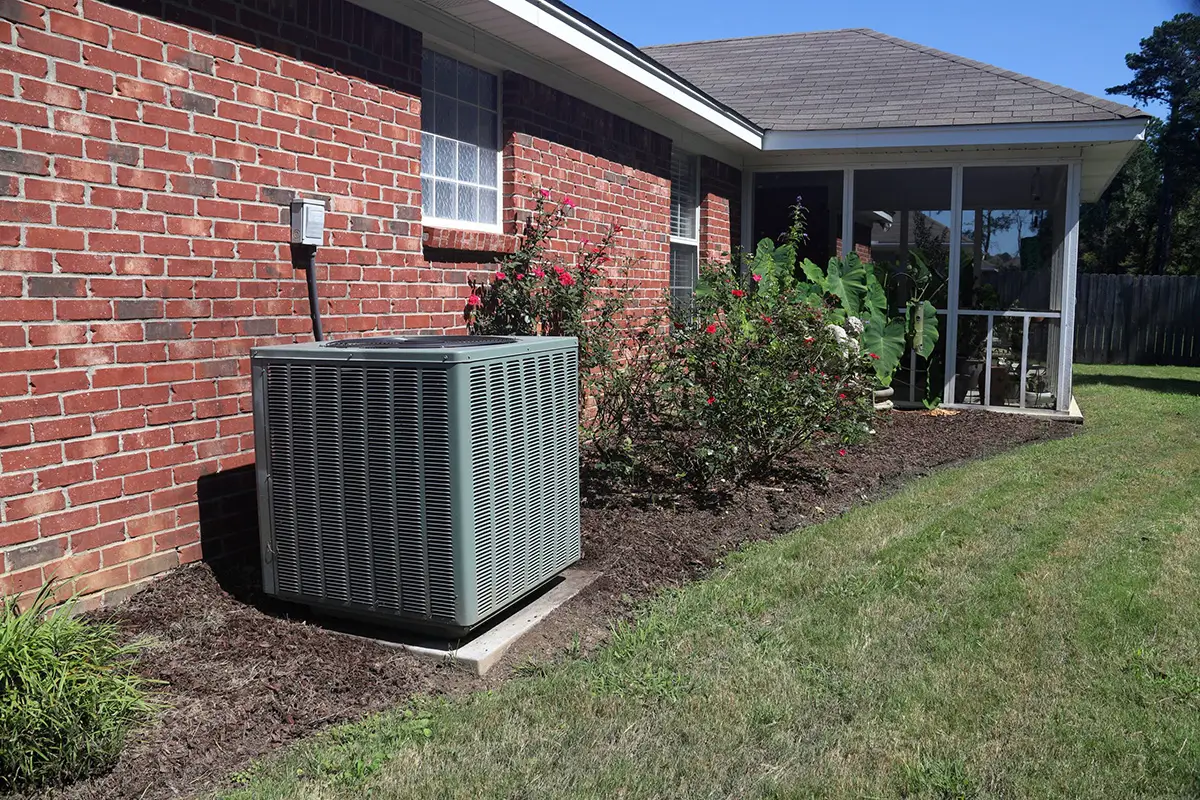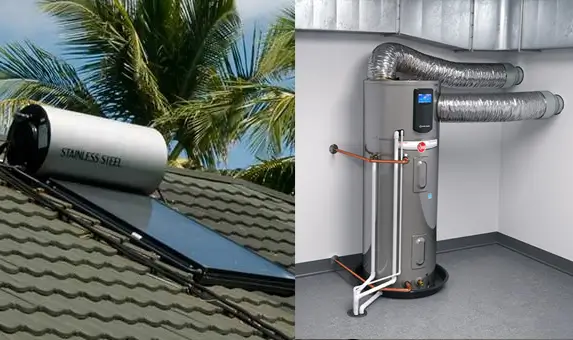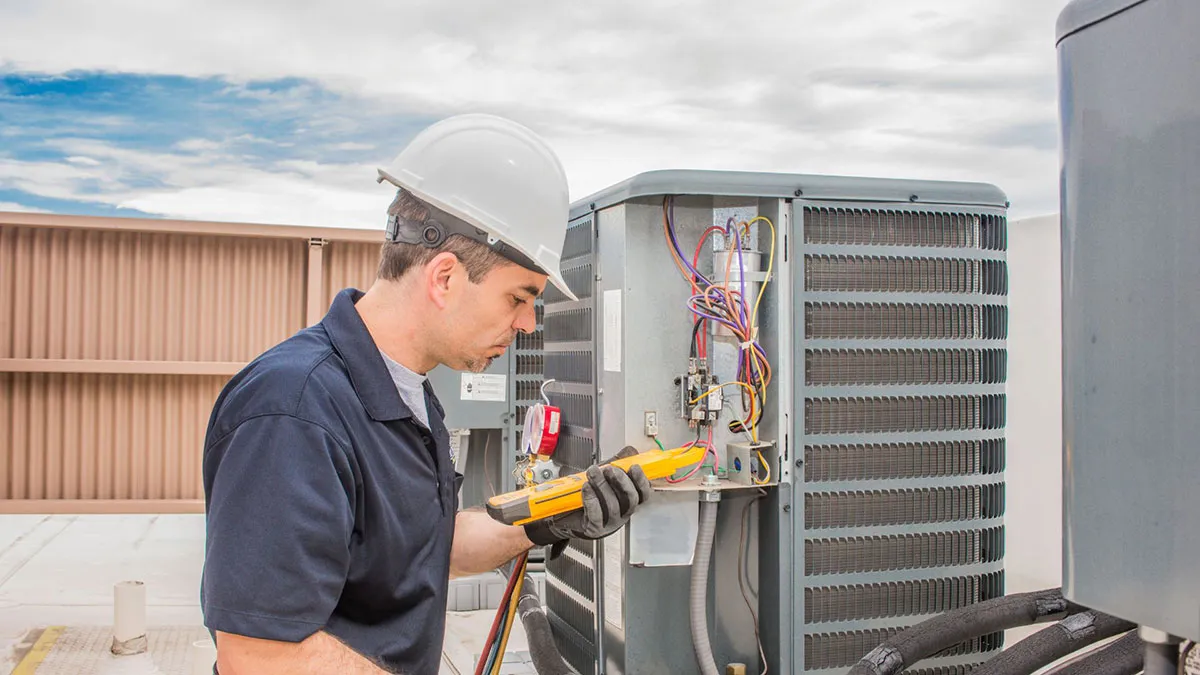Living in Hawaii’s tropical climate, a frozen air conditioning unit is the last thing you want to deal with. When your AC system starts icing over, it can’t run efficiently and may shut off completely until the problem is fixed. A frozen evaporator coil is a surprisingly common issue that many homeowners face at one point or another.
In this blog post, we’ll dive into what exactly it means when your air conditioner freezes up and why this happens. You’ll learn about some of the most common reasons an AC freezes over, from a dirty air filter to a refrigerant leak. We’ll then provide step-by-step instructions on how to safely defrost and troubleshoot your frozen air conditioning unit.
Preventing future freezing issues is also key, so we’ll cover maintenance tips to help stop ice buildup before it becomes a problem in Hawaii’s humid climate. If the DIY steps don’t get your AC running normally again, we’ll explain when it’s time to call in a professional HVAC technician for assistance.
What Does It Mean When an AC Freezes Up?
While it may seem counterintuitive, one of the most common air conditioning problems in Hawaii is a frozen evaporator coil. When working properly, the evaporator coil inside your AC unit should be cold but not frozen over. It’s designed to remove heat and humidity from the air, with the condensation draining away.
However, if conditions aren’t ideal, the moisture can start freezing on the coil instead of draining out. At first, you may just notice a thin layer of ice forming. If the freezing process continues, the ice will steadily build up more and more across the entire coil.
As the ice accumulates, airflow gets blocked and the evaporator coil can no longer absorb heat effectively. This causes a domino effect of problems – your air conditioner will be working harder but putting out warm air, if any air at all. The constant running with little cooling effect puts immense strain on the compressor. If the freezing persists, it can eventually cause compressor failure or burn out the AC unit’s motors and other components.
You’ll know your AC has a serious freezing issue if you notice:
- Warm air blowing from the vents when the thermostat is set to cool
- Airflow is very weak or won’t blow at all
- Frost/ice buildup visible on the refrigerant lines
- Water leaking or overflowing from the AC unit
- Strange clunking or hissing noises coming from the system
If you catch it early and defrost the coil, a frozen AC isn’t an emergency. However, it’s crucial to identify and fix the root cause to prevent recurring freezing that can permanently damage the unit. Allowing the freeze to remain and running the AC in this state will only make the problem worse and worse over time.
Many different issues can lead to evaporator coil freezing. Some of the most common culprits include a dirty air filter, refrigerant leak, blocked return airflow, failed defrost controls, or simply running the system for too long at too low of a temperature setting. We’ll dive into these reasons in more detail in the next section.
Common Reasons Your Air Conditioner Freezes Up
There are a variety of different issues that can lead to evaporator coil freezing and cause your air conditioner to ice over. Understanding the potential causes can help you troubleshoot and fix the root problem. Here are some of the most common reasons an AC unit freezes up in Hawaii homes:
Dirty Air Filter
This is one of the leading culprits behind frozen evaporator coils. Air filters trap dust, dander, and other airborne particles to keep them from building up inside the AC system. When the filter becomes clogged, not enough air can flow over the evaporator coils to remove the condensation moisture.
Restricted Return Airflow
In order for the air conditioning process to work properly, there needs to be adequate airflow. If the return air vents are blocked by furniture, rugs, closed doors, etc. it restricts the amount of warm air circulating over the coils. This lack of warm airflow can cause the condensation to freeze instead of draining away.
Refrigerant Leak
Refrigerant is the lifeblood of an air conditioning system, circulating between the indoor and outdoor units to transfer heat. If there is a leak causing low refrigerant levels, it can drop the pressure and temperature of the evaporator coil too low, allowing ice to form easily.
Faulty Defrost Controls
Most AC units have a defrost mode that temporarily turns off the cooling function to allow any ice buildup on the coils to melt away. If this defrost cycle isn’t kicking in properly due to failed controls or sensors, ice can accumulate unchecked.
Drainage Issues
For the condensation to drain properly, the drain line and drain pan need to be clear with no blockages. A clogged condensate drain will cause water to back up onto the coils and freeze over time.
Low Air Flow
Beyond blocked return vents, other issues like a failing blower motor or bent fan blades can reduce the system’s overall airflow. If there isn’t enough air circulation over the coils, moisture will freeze instead of being blown away as humidity.
Thermostat Setting Too Low
While not a mechanical issue, setting your thermostat to too low of a temperature in Hawaii’s humid climate can also cause coil freezing. If the AC runs for extended periods trying to reach an extremely cool setpoint, the evaporator coils may get too cold and ice over.
Outdoor Unit Issues
Problems with the outdoor condenser unit like a stuck fan motor, failed compressor, or dirty coils can impact heat transfer and refrigerant flow. This can eventually lead to frozen evaporator coils inside as a secondary effect.
Age of AC Unit
As air conditioning systems get older and wear down over many years of use, they don’t run as efficiently as they once did. Aging equipment may be more prone to icing up and other operational issues.
While some of these common freezing causes are relatively easy to troubleshoot, others may require professional HVAC repair service. Trying to fix a refrigerant leak, replace faulty defrost components, or service an old AC unit yourself can be extremely difficult and even dangerous if not done properly. Whenever in doubt, it’s best to call in a certified technician to diagnose and repair any major air conditioning freezing issues.
How to Fix a Frozen Air Conditioner
Noticing your AC has turned into an ice box? Don’t panic – a frozen evaporator coil is fixable if you act quickly. Here are the steps to get that ice cube defrosted:
1. Power it down
Flip that AC to the “off” position on your thermostat and kill the circuit breaker too. Letting it keep chugging along while frozen is a surefire way to fry the compressor. Unplug window units as well. Shutting it off allows the thawing process to begin.
2. Find any airflow blocks
Do a walkthrough and locate any potential airflow restrictions. Move that lazyboy recliner away from the return vent. Rearrange those storage boxes blocking the intake. Replace that filter looking like it got caught in a dust storm. Restoring airflow is key.
3. Let it melt
With power cut and airflow no longer obstructed, that ice has nowhere to go but down the drain pan. You can speed things up by positioning a fan to blow air over the frozen areas. But don’t be tempted to start chipping away – that’ll just damage the delicate coil fins.
4. Check the drain
Locate the condensate drain line and pan, usually near the indoor air handler unit. Make sure it’s draining properly and not clogged up with gunk. If so, clear out any debris blocking the drain. You can pour a little distilled vinegar down the line to help flush it out.
5. Refrigerant refill?
If the AC still isn’t cooling properly post-defrost, the refrigerant levels could be low. Signs include warm air, ice on the refrigerant lines, and high energy bills. An HVAC tech can recharge the system if needed.
6. Inspect components
Other potential issues could be the defrost controls, condenser fan, compressor, you name it. Mechanical issues like these will likely require a professional set of eyes.
7. Cross your fingers
Once defrosted and any root causes addressed, fire that AC back up and keep close watch. If the ice makers return, shut it down and call for backup.
While you can try some basic DIY fixes, an annual professional tune-up is recommended to help prevent freeze-ups in the first place. Catching little issues early avoids costlier repairs down the road.
Preventing Your AC From Freezing in Hawaii
Hawaii’s tropical climate and humidity levels can put extra strain on air conditioning systems. Following some simple preventative steps goes a long way in avoiding that dreaded frozen evaporator coil.
Keep It Clean
One of the easiest things you can do is keep up on regular air filter changes. A clogged filter restricts airflow, causing moisture to ice up on the coils instead of properly draining. Aim to swap out disposable filters every 1-3 months or clean permanent filters monthly.
While you’re at it, use a vacuum hose to clear any dust buildup on the return air vents and around the indoor air handler unit. This helps ensure good airflow into the system.
Give It Some Breathing Room
Make sure there’s plenty of clearance around both the indoor and outdoor AC units for proper airflow. Rearrange any furniture, boxes, or decor pieces blocking the return vents. Outside, cut back any bushes, vines or debris crowding the condenser unit.
Don’t Be an Extremist
While it’s tempting to crank that thermostat down in Hawaii’s heat, avoid setting the temperature too low. Allowing the AC to run constantly trying to reach an extremely cool setpoint increases the risk of coil freezing. Most experts recommend keeping it set no lower than 70°F.
Let It Defrost
If you do notice some light frost accumulation on the refrigerant lines, don’t panic just yet. Simply turn off the AC and let it go through its defrost cycle to melt the ice off. The defrost mode should kick in automatically every 6-8 hours of runtime to prevent serious buildup.
Stay On Schedule
The best way to keep your Hawaii AC running in peak condition? Stick to an annual preventative maintenance schedule. Having an HVAC pro inspect and tune-up your system goes a long way in avoiding breakdowns and operational issues like freezing.
During their maintenance visit, the technician will clean the coils, check all components, test refrigerant levels, and ensure everything is working as it should. Small problems can be caught and fixed before turning into a costly repair down the road.
By following these simple tips, you can help maximize your air conditioner’s efficiency and prevent that evaporator coil from turning into an ice rink. But if you do find yourself with a serious frozen AC unit, don’t let it melt into a puddle of panic – just refer back to our defrosting guide!
When to Call a Professional HVAC Technician
While some frozen AC issues can be resolved with basic DIY troubleshooting, there are plenty of scenarios where it’s best to call in the professionals. Trying to tackle major repairs yourself can actually end up causing more damage and headaches down the line.
If at any point you feel in over your head or unsafe attempting a fix, don’t hesitate to request expert assistance. An experienced HVAC technician has the proper training, tools and know-how to accurately diagnose and repair air conditioning freezing problems.
Here are some instances when it’s wise to phone a friendly neighborhood heat professional:
The Freeze Won’t Quit
If you’ve tried turning off the unit to defrost, cleared any airflow obstructions, cleaned out the condensate drain and the darn thing still keeps freezing over – time to wave the white flag. Persistent freezing points to an underlying issue that needs professional repair.
Refrigerant Leak
Refrigerant is the lifeblood keeping your AC system chugging along. If you have a refrigerant leak, the telltale signs are warm airflow, ice buildup on the refrigerant lines, and the unit never quite cooling properly no matter what you try. Refrigerant leaks should always be sealed and the system recharged by a certified HVAC tech.
Failed Components
From the defrost controls to the fan motors, compressors, contactors and more – there are a lot of mechanical parts involved in making your AC unit function. If any of those components malfunction or fail completely, they’ll need to be repaired or replaced by a pro. Attempting DIY fixes on complex equipment is never advisable.
Electrical Issues
Does your AC keep tripping the circuit breaker? Or maybe you’re picking up on some unsettling burning smells or weird noises when it kicks on? Any potential electrical issues are a major red flag to call in reinforcements immediately before a fire hazard occurs.
Old Unit Woes
As air conditioners get up there in age after 10-15 years of solid service, they become more prone to freezing up and other operational problems. Older units simply don’t run as efficiently as they once did in their prime. A technician can inspect your system and let you know if it’s finally time for a full replacement.
Annual Maintenance
This is the best way to prevent your AC from freezing up in the first place! Most HVAC companies offer yearly tune-up specials to thoroughly inspect your system. During this maintenance visit, a technician can clean the coils, check all components, test refrigerant levels, and address any small issues before they escalate into larger (and pricier) problems.
Strange Noises or Smells
Any kind of abnormal sounds like grinding, squealing or banging coming from your AC unit is a cause for concern. Same goes for any funky burning smells or excessive vibration. These are signs that something is seriously amiss and it’s not worth the risk of trying to diagnose it yourself.
While some basic DIY AC defrosting and troubleshooting is fine, don’t hesitate to request professional backup if the problem persists or you suspect a larger underlying issue. Catching problems early and making minor repairs can often prevent your air conditioner from completely freezing over and sustaining major damage. When it comes to complex HVAC equipment, it’s always better to be safe than sorry!
Don’t Let a Frozen AC Freeze You Out – Call Steve’s Plumbing & AC Service!
There’s no need to keep sweating over a frozen air conditioning unit in Hawaii’s heat and humidity. The team at Steve’s Plumbing & AC Service has decades of experience quickly defrosting and repairing frozen ACs all across Maui, Big Island, Oahu, and Kauai. Each of our technicians is extensively trained, extremely experienced, and highly knowledgeable.
From refrigerant leaks to failed components, electrical issues, and everything in between – our certified HVAC experts have seen and fixed it all. We understand the importance of your AC system, and each time we’re hired, our team is honored by the trust exhibited in us. We’ll get to the root cause of why your unit keeps freezing up and implement a lasting solution, striving to honor that trust by providing the highest quality services possible.
Preventative maintenance is also key to avoiding that evaporator coil from turning into an ice rink. Our annual tune-up service will thoroughly clean, inspect, and optimize your air conditioning system. Small problems can be caught and repaired before they snowball into bigger headaches (and bigger repair bills!).
Don’t let a frozen AC make you lose your cool. Call the friendly professionals at Steve’s Plumbing & AC Service today at (808) 563-4054 to schedule your AC repair or request a quote! We’ll have that icy situation defrosted and back to keeping you comfortably chill in no time across Maui, Big Island, Oahu, and Kauai.









